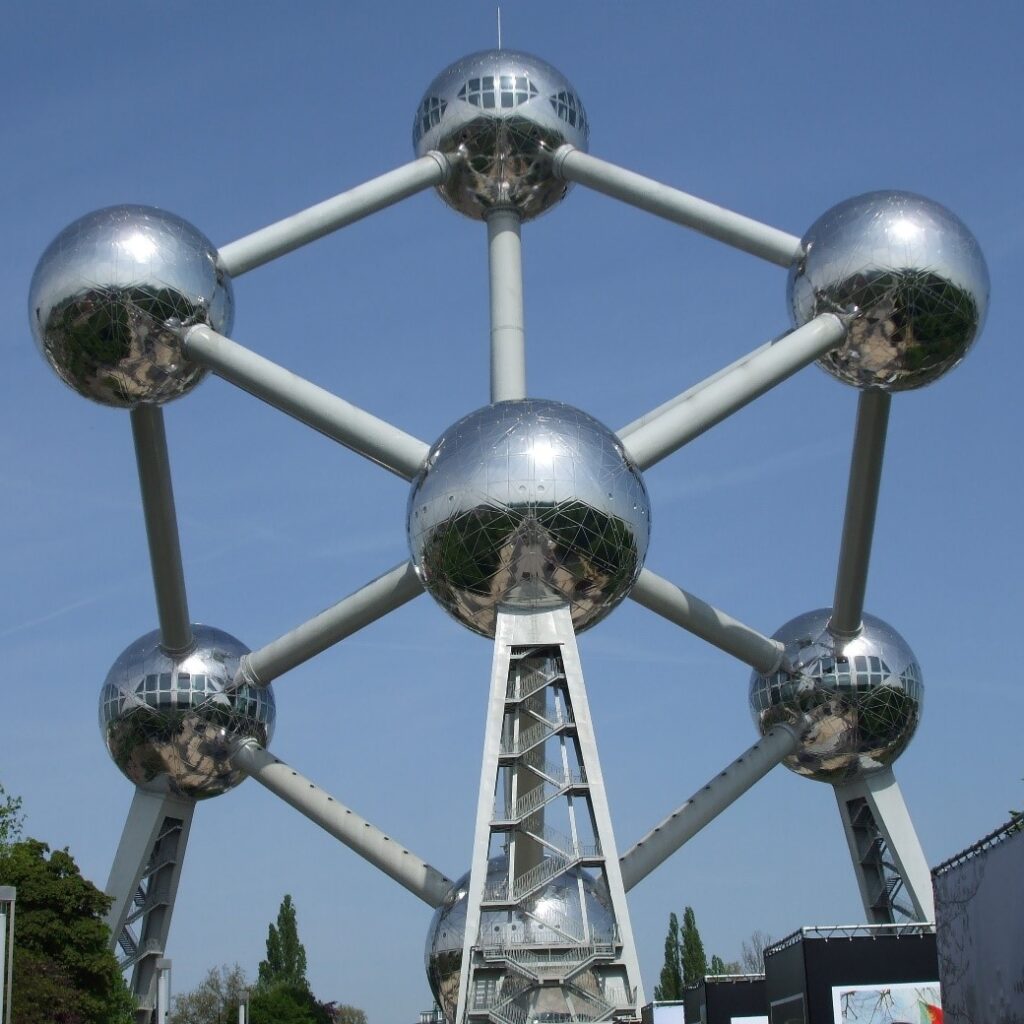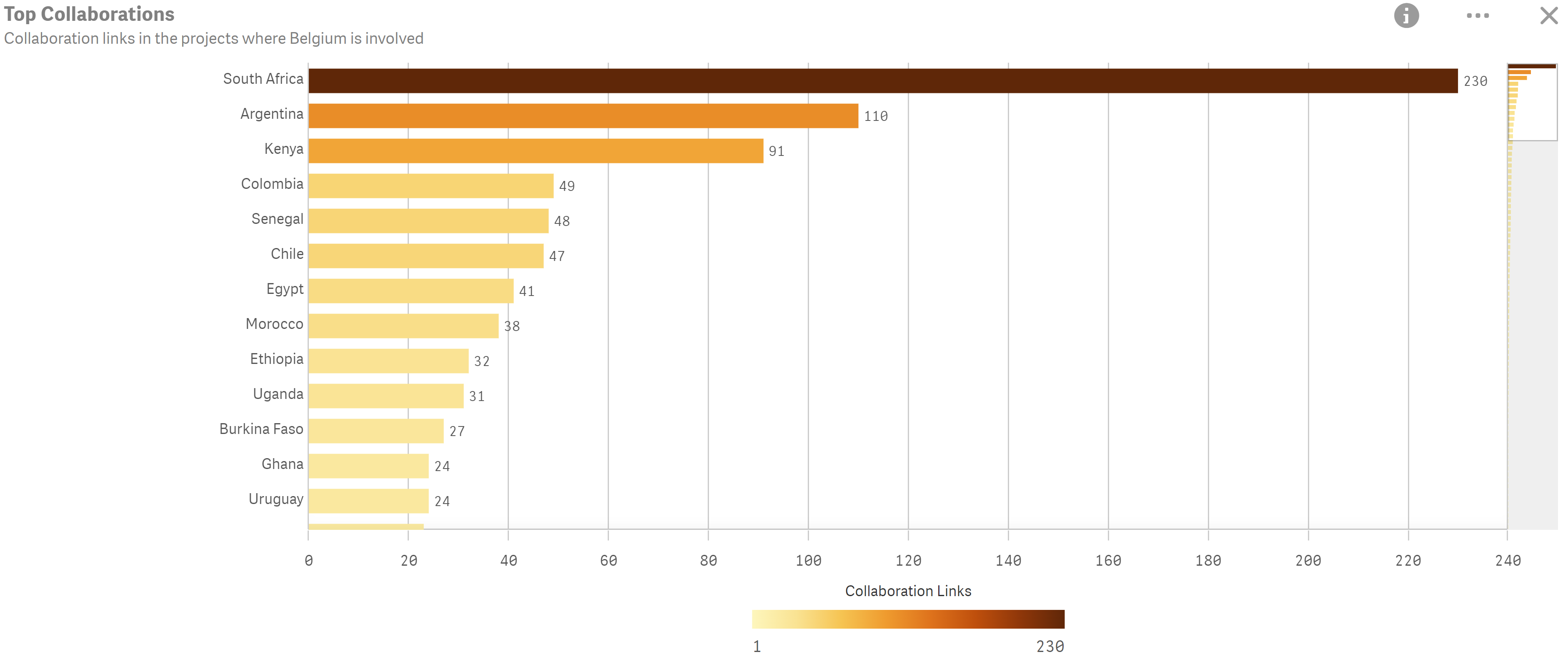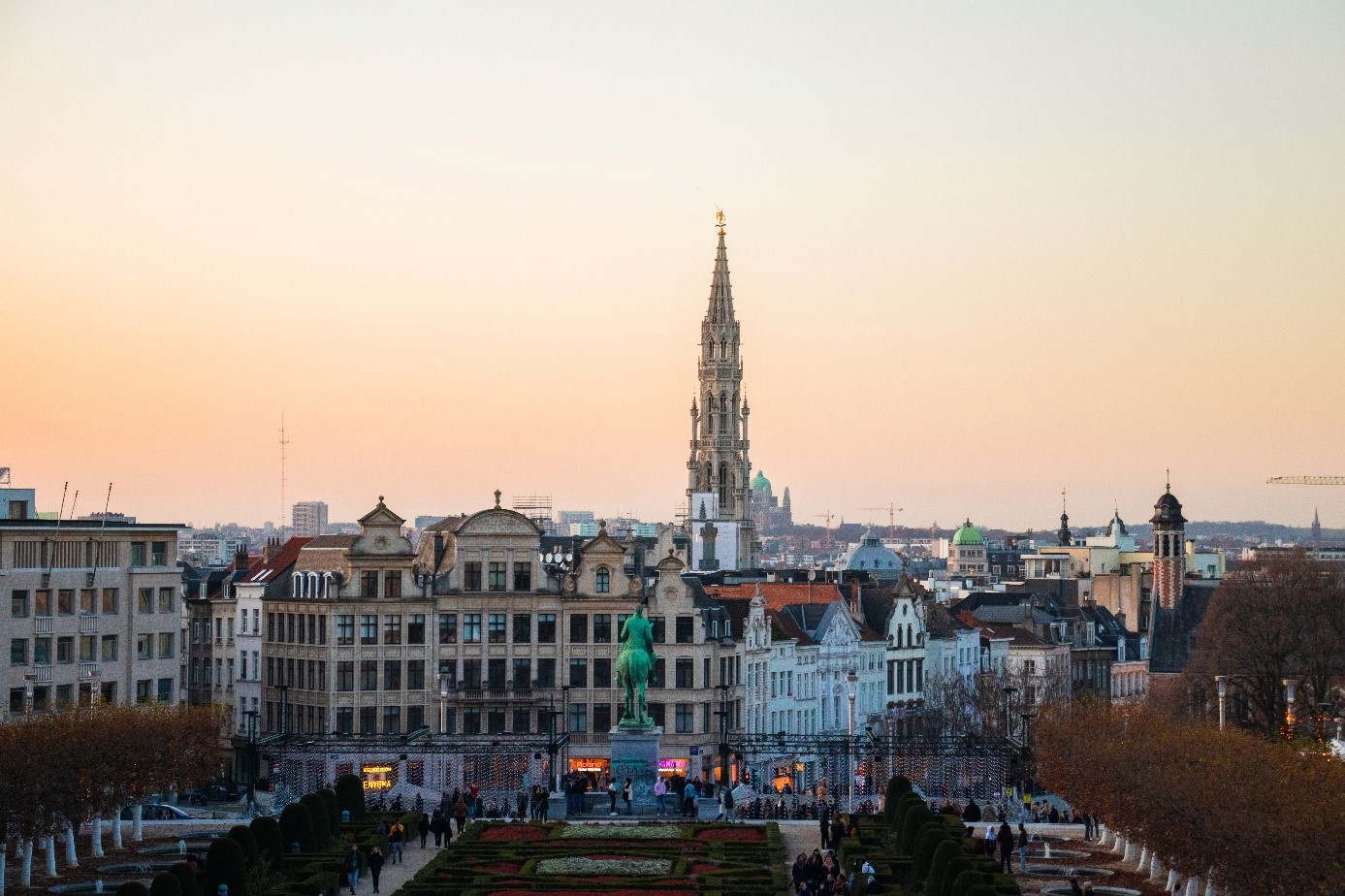“Belgium and the countries of Latin America and the Caribbean have potential for cooperation in future-oriented areas such as digitisation, science, technology and innovation, standardisation, and the fight against climate change”.
Belgium is a compact and diverse market, located at the crossroads of Europe. The country is considered to be a leading test market as it contains distinctly separate socio-demographic groups such as the Dutch-speaking Flemish and the French-speaking Walloons, thus the Belgian economy largely reflects the overall European economy and consumer trends. Often referred to as “the capital of Europe,” the Belgian capital of Brussels is home to the headquarters of the EU and NATO, as well as hundreds of international institutions, associations, and multinational corporations (International Trade Administration).
With a population of 11.35 million people in a small territory, the country is densely populated. It enjoys one of the highest per capita incomes in Europe, with a relatively balanced income distribution and purchasing power among its residents. In 2020, Belgium’s GDP reached $515 billion. Distinguished by its major ports (Antwerp is the second largest port in Europe) and first-class logistical infrastructure, a significant portion of bilateral trade either originates in, or is destined for, other countries in Europe, making Belgium a gateway for the EU market. Moreover, as the result of high investment in the quality of its labour force, Belgian productivity is 12% higher than the OECD best performers levels (International Trade Administration).
Belgium ranks 12th among the 27 EU Member States in the 2021 edition of the Digital Economy and Society Index (DESI). The integration of digital technology by enterprises remains one of the country’s strong points. Belgium is leading in terms of the number of enterprises using internal electronic information sharing and is 2nd in the EU in the share of enterprises providing ICT training to their employees. Several initiatives at regional and federal level continue to support the digital transformation of the economy. The formation of a new federal government in October 2020, with an ambitious agenda for digital public services, should boost e-government over the next few years (DESI).
Relations between Belgium and the countries of Latin America and the Caribbean are multifaceted and developed at various levels. In addition, to traditional economic, commercial, and political links, there are also other forms of cooperation, such as academic, scientific, and cultural cooperation. The Belgian diplomatic network in Latin America and the Caribbean currently comprises eight embassies (Bogota, Brasilia, Buenos Aires, Havana, Kingston, Lima, Panama, Santiago) and two consulates general in Brazil (Rio de Janeiro, São Paulo). There is potential for cooperation in future-oriented areas such as digitisation, science, technology and innovation, standardisation, and the fight against climate change (Foreign Affairs Belgium).
Economic Forecast
Belgium recovered firmly in 2021 from the COVID-19 pandemic thanks to extensive policy support. Growth will remain steady at 2.4% in 2022. However, the new shock from the war in Ukraine is exacerbating inflation, and supply and labour market shortages, highlighting the importance of boosting the resilience of the Belgian economy (OECD Belgium). Being export-oriented, Belgium is exposed to swings in external demand. Belgium’s dependence on Russian gas makes it particularly exposed to a spike in energy prices, and the risk of a gas-supply squeeze (The Economist).
Belgium’s National Recovery and Resilience Plan (financed by the European Resilience and Recovery facility) has the goal to make up for a structural delay in public investment in Belgium and accelerate the transition towards more sustainable, resilient and inclusive growth, while reinforcing social, economic and climate resilience. Addressing the seven flagship areas for investments and reforms identified by the European Commission, €5.249 million euros will support (Belgium NRRP):
- Climate, sustainability and innovation
- Digital transformation
- Mobility
- Social and living-together
- Economy of the future and productivity
- Public finances
Belgium’s Science Technology and Innovation (STI) Landscape

Belgian has a strong political will to develop ICT and is pursuing a “Digital Belgium” Agenda that includes plans for faster connectivity, next generation mobile data, and digital skills. In 2021, the country invested 3.5% of its GDP on research and development (R&D). Furthermore, various cities are implementing Smart Cities development programs, with Antwerp being at the forefront and acting as a “living lab” for other regions and European countries.
Enabel is the Belgium development agency that executes Belgian governmental cooperation. In LAC, the agency has direct partnership with the Argentinian Ministry of Foreign Affairs. In the Belgian French-speaking community, the Wallonia governmental department of research and technological development manages the support mechanisms to applied research and innovation. Funding opportunities in this region includes (EURAXESS):
- Fund for Scientific Research (FNRS): Funding
- Académie de Recherche et d’Enseignement supérieur (ARES): scholarships
- Wallonie-Bruxelles International (WBI): scholarships/fellowships
In the Belgian Dutch-speaking community of Flanders, Vision on Technology (VITO) is responsible for science, research and innovation. Funding opportunities include:
- Research Foundation – Flanders (FWO): Fellowships & Funding (fundamental research)
- Flemish Interuniversity Council (VLIR)- University Development Cooperation (UOS): VLIR-UOS: Project Funding
- VLAIO: (research focused on industry, relevant for researchers are the Baekeland mandaten (PhD candidates) and the Innovatiemandaten (post-docs).
National Science Technology and Innovation priorities
Belgium is a federal state. As such, it is mainly the communities and regions that are responsible for scientific research. In the Flanders region the priority themes of research are the following (Vision on Technology):
- Sustainable chemistry: value chain from renewable and circular resources
- Sustainable materials: circular economy, waste
- Sustainable land use: air &climate, land, water
- Sustainable health: environment health & safety, preventive health
- Sustainable energy: energy market & strategy, optimization of energy systems, buildings & districts
In the region of Wallonia, strategic innovation areas are (Wallonie Government):
- Circular materials
- Innovations for better health
- Innovations for agile and safe design and production
- Sustainable energy systems and housing
- Agri-food chains of the future and innovative environmental management
At the federal level Belgian research has focused on areas such as medicine, biochemistry, statistics and astronomy. The country is also active in space research, North Sea research, climate research in Antarctica and sustainable development. In Belgium, science has traditionally been linked to education and the public sector. But recently, industry has also been heavily involved in scientific research, focusing on space travel, biochemistry, medicine, pharmaceuticals and IT (Belgian Government).
Previous contribution in Horizon 2020
In total 8.420 Belgian organisations were involved in Horizon 2020 projects with a total of 3,4B Euro funding received by the project’s participants. Structured by thematic priority, projects were conducted mainly within the frame of (Horizon 2020 Dashboards, state of July 2022):
- Marie-Sklodowska-Curie Actions (1140 participations)
- Smart, green and integrated transport (979 participations)
- Secure, clean and efficient energy (832 participations)
- Health, demographic change and wellbeing (816 participations)
- Food security, sustainable agriculture and forestry, marine and maritime and inland water research (775 participations)
- Information and Communication Technologies (756)
- Climate action, environment, resource efficiency and raw materials (553 participations)
- European Research Council (330)
- Europe in a changing world-inclusive, innovative and reflective societies (273 participations)
- Secure societies-Protecting freedom and security of Europe and its citizens (247 participations)
- Research Infrastructure (249 participations)
- Future and Emerging Technologies (179 participations)
- Advanced manufacturing and processing (208 participations)
- Space (198 participations)
- Euratom Research and Training Programme (165 participations)
- Others
The three major organisations in terms of received funding were the KATHOLIEKE UNIVERSITAT LEUVEN(378,93M Euro), COST ASSOCIATION (260,01M Euro) and INTERUNIVERSITAIR MICRO-ELETRONICA CENTRUM (246,39M Euro). The main collaboration links with LAC Countries of the Collaborative Country Group ‘Other Countries which get Automatic Funding’ are Argentina with 110 collaborations, Colombia with 49 collaborations and Chile with 47 collaborations (Horizon 2020 Dashboards, state of July 2022).

Funding opportunities in Horizon Europe
Horizon Europe is the biggest EU research and innovation programme ever with €95.5 billion of funding available over 7 years (2021 to 2027). It is open to the world. This means that participants from all over the world can participate in most calls. In many cases, the EU will fund at least partly the participation of the international partners. As a member state of the EU, participants from Belgium are automatically eligible for EU funding, unless specific limitations or conditions are laid down in the work programme and/or call/topic text. Most LAC countries are also eligible for EU funding as per the Horizon Europe participation rules. The list of eligible countries can be consulted in the Funding and Tenders Portal.
